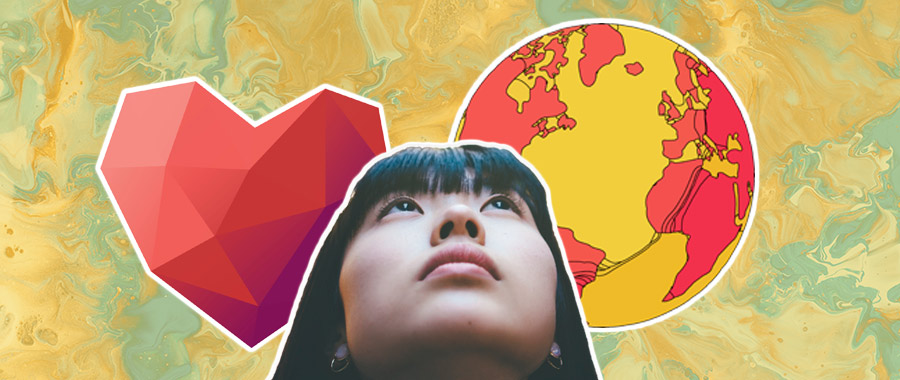In today’s multifarious society, the concept of spiritual ethics pervades numerous discussions. This discourse examines the teachings of the Bahá’í Faith, particularly focusing on the principles of love and unity. In a world often fraught with division and conflict, Bahá’í teachings offer profound insights that are imperative for nurturing a harmonious existence among humanity.
At the heart of Bahá’í teachings lies the idea that love is a transformative force. This transcendent love is not merely an emotion but represents a deep commitment to the well-being of others. Central to this paradigm is the belief in the innate oneness of humanity. Bahá’ís assert that every individual, regardless of ethnicity, nationality, or creed, is deserving of respect and consideration. This intrinsic unity necessitates an embrace of diversity while fostering an inclusive community grounded in mutual respect and understanding.
Moreover, the Bahá’í principle of unity is not confined to mere rhetoric; it is a call to action. Individuals are encouraged to cultivate their capacity for love, extending beyond familial and cultural boundaries. This cultivation often involves deliberate practices such as community service, interfaith dialogue, and educational initiatives that underscore our shared human experience. In this light, spiritual ethics manifest not as abstract ideals but as actionable imperatives that prompt individuals to contribute positively to society.
Furthermore, acknowledging the multi-faceted nature of spiritual ethics requires an understanding of their broader implications. The guidance offered by Bahá’í teachings urges adherents to develop qualities such as compassion, equity, and justice. Compassion acts as a balm in a divided world, allowing individuals to resonate with the struggles of others. This empathetic approach is foundational in easing societal tensions that arise from misunderstanding and discrimination.
In tandem with compassion, the pursuit of equity assumes an equally significant role. Equity, as conceptualized within Bahá’í thought, is an acknowledgment of the varying needs and circumstances of individuals while striving to ensure that everyone has access to opportunities. It calls for the dismantling of systemic barriers that inhibit the flourishing of marginalized communities. Such efforts embody the essence of justice, which Bahá’ís regard as a fundamental pillar of a prosperous society.
In a world characterized by rapid change and uncertainty, the Bahá’í teachings on spiritual ethics also embrace the necessity of adaptability. Love, unity, and service to humanity require an openness to new ideas and a readiness to engage in continuous learning. This adaptability is paramount in fostering dialogues around complex issues such as climate change, social justice, and global health. By engaging with diverse perspectives, individuals can arrive at solutions that reflect collective wisdom and enhance global solidarity.
Importantly, Bahá’í teachings advocate for personal transformation as a prerequisite for societal change. The notion that one must begin with oneself is paramount. Individuals are encouraged to introspect and evaluate their conducts, aligning their actions with the ethical ideals they espouse. This transformative journey necessitates the cultivation of virtues—patience, kindness, and humility—qualities that enhance interpersonal relationships and create an atmosphere conducive to unity.
In light of these teachings, the Bahá’í community serves as a living example of how spiritual ethics can be integrated into daily life. Regular gatherings and consultation processes define this community-oriented approach, encouraging members to voice their opinions and collaborate on initiatives aimed at societal betterment. Such cooperative efforts foster a sense of shared responsibility and accountability, vital in promoting love and unity within the broader society.
However, applying these teachings is not without challenges. Individuals often confront societal norms and paradigms that oppose the principles of love and unity. Resistance to change, ingrained biases, and entrenched interests can deter efforts toward equity and justice. Nonetheless, the steadfast commitment to spiritual ethics provides a compass for navigating these complexities. Through perseverance, both individual and communal endeavors can transform prevailing narratives into more inclusive and loving discourses.
The integration of Bahá’í spiritual ethics into various spheres—social, economic, and political—underscores the universality of love and unity. Educational institutions embody this integration by promoting curricula infused with moral teachings, thereby equipping future generations with a robust ethical framework. This focus on holistic education engenders a comprehensive understanding of one’s role within the tapestry of humanity, fostering a global consciousness anchored in love.
Thus, the teachings on love and unity are not mere abstractions but practical guidelines that inform decision-making and behavior in diverse contexts. Whether addressing interpersonal conflicts, engaging in community initiatives, or participating in global discourse, the application of these spiritual ethics becomes imperative in the quest for a unified and compassionate civilization. The realization of a truly united humanity hinges on the willingness to embody these principles, transcending barriers and extending love in the face of adversity.
In summary, Bahá’í teachings provide a robust framework for understanding and practicing spiritual ethics amidst contemporary societal challenges. In a world characterized by strife and division, the principles of love and unity serve not only as ideals to aspire to but as actionable strategies for fostering harmony and cohesion. Embracing these teachings requires a commitment to personal and communal transformation, catalyzing a movement toward a more just and equitable world. Through collective action, guided by the tenets of Bahá’í spirituality, the vision of global unity—rooted in love and compassion—can become a tangible reality.
